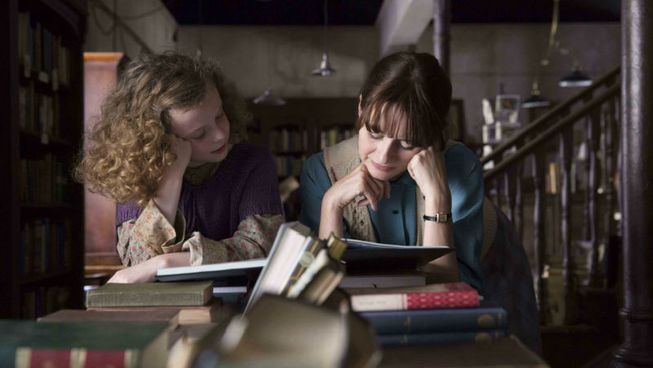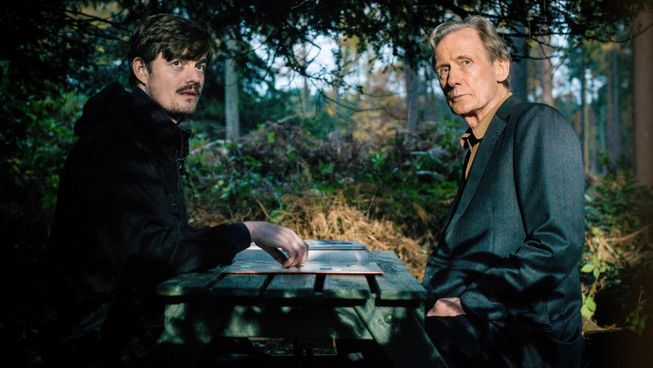
2 out of 5 stars
“A good book is the precious life-blood of a master-spirit, embalmed and treasured up on purpose to a life beyond life, and as such it must surely be a necessary commodity.” ― Penelope Fitzgerald, Author of The Bookshop
For many people in the world, there is nothing more comforting than the local bookshop. Even though it is not a library, the hushed tones of customers rustling through the aisles and attempting to find a hidden literary treasure is a unique experience. Complementing the familiar scent of new books are the memories of past literary adventures all readers experience. As you imagine the sights and smells of your favourite bookstore, come along to the world created by Penelope Fitzgerald in her novel, The Bookshop.
Set in the small coastal township of Hardborough, Suffolk in 1959, Florence Green (Emily Mortimer) has recently purchased the historic Old House to open a bookshop. An antiquated and damp establishment seems to fulfil her dream of introducing new worlds to the community and as a memorial to her late husband. Even with noble intentions, the aspiring retailer finds she has her fans and her adversaries within the tight-knit community.
The affluent local matriarch, Violet Gamart (Patricia Clarkson) had her eyes on the property for an art centre and causes extraordinary challenges for Florence with her political and financial means. This influence of the community leadership takes some time to come to fruition and the young shop owner manages to grow the business and gain support from the townsfolk and most notably from the reclusive Mr. Brundish (Bill Nighy). Then one business decision causes a ripple in the small town and Mrs. Gamart begins to make things exceptionally difficult for Mrs. Green.
From the opening narration, there is underlying anticipation that this character-rich drama is going to deliver a potentially charming and beautiful story. Spanish director Isabel Coixet (Amodio) sets the tone of this quiet and smouldering tale with a pictorial depiction of the small community of Hardborough. Taking the audience back into a not-so-distant past and showing the best and worst of life in this small township. Capitalising on the vibrant characters and setting up a desire to know the history behind each person and why they have become who they represent. These elements make up for the lethargic pacing and will keep audiences engaged for the first act, but eventually, the expectation turns into boredom and despair.
Being afforded with such rich characters and an outstanding cast to back these intriguing individuals, it is bewildering why this colourful palette of personalities could lead to such a dark and monochromatic conclusion. The reasoning behind the ultimate hopelessness of Florence Green’s journey can only be attributed to Coixet's European stylings. Mortimer and Nighy are captivating and help to set up what should be an enjoyable tale of revival, redemption and courage, but their work becomes a depressing and unappealing narrative on the human condition. The cast does all they can to develop an appealing atmosphere, but the screenplay works against them. For all of the investment into the development of Penelope Fitzgerald’s novel, this production lacks the vitality or appeal promised in the beginning.
The Bookshop has an underlying motivation to challenge people to be courageous and reach for your dreams or at least to challenge people to read more books. All of these hopeful overtures are undermined by a frustrating and morally confusing message of corruption and misplaced belief.
Reel Dialogue: What can we really know about courage?
I can do all things through him who strengthens me. - The Apostle Paul
An underlying message of The Bookshop is the notion of human courage, some may come away with the notion that this is a man-made concept. An alternative thought would be that God has a plan for his creation to live courageously. The only stipulation is that we should live to his standard, not based on our own preconceived notions. Many see the Bible as being a book of limitations and regulations, as opposed to seeing it as an instruction book on how to truly engage with and get the most out of the life that we have been given. Have you taken time to read the instruction manual?
Passages on living courageously: Jeremiah 29:11, Psalm 37:4, Psalm 90:12, Proverbs 27:1, Matthew 6:34, Philippians 4:13, John 10:10






